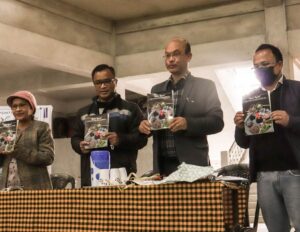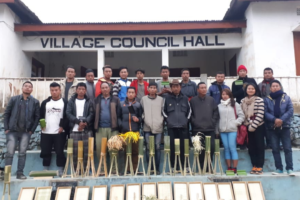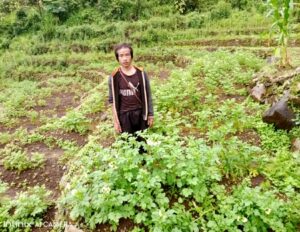The ongoing COVID-19 pandemic has been an unexpected setback for many small enterprises and businesses. Local economies have been caught in a stop and start circle due to the various restrictions and protocols imposed by the government to combat the pandemic. In this regard, farming is one business that has borne the economic brunt of the pandemic.
Launched at the wake of the pandemic to ensure the supply of fresh vegetables and fruits, “Farm on Wheels”, an initiative supported by NESFAS has been a catalyst of change in alleviating economic distress among two farming communities in East Khasi Hills.
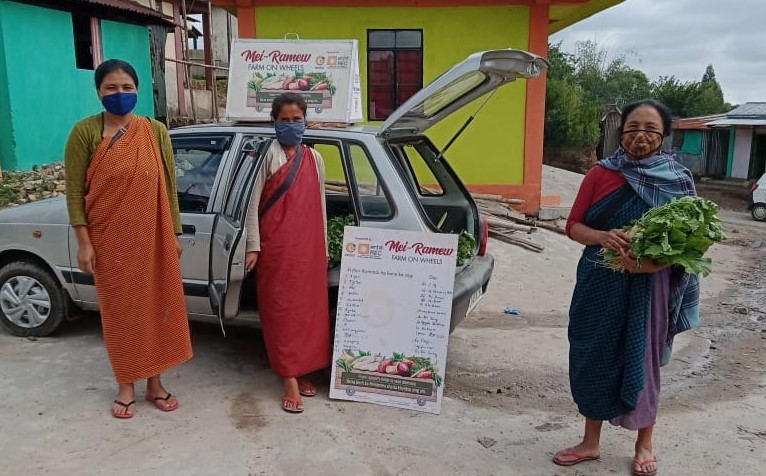
Nongwah and Mawhiang both started their FOW initiatives in June last year. For Nongwah, the FOW group was the collective effort of 11 PGS farmers while Mawhiang started with 20 PGS farmers. The concept behind FOW is simple; Farmers bring together their vegetables and other foraged plants and fruits and sell these products through mobile vehicles driving across neighbouring villages. The group from Nongwah have conducted the FOW 30 times since last year with local produce such as radish, mustard leaves, cucumber, potatoes, and wild edibles like jamyrdoh, jatira being among the most sold products according to the farmers:
“The group as well as I personally have benefitted a lot from Farm on Wheels. For me, I have earned a lot of profit selling radish during the winter seasons,” said Kong Thirda Khasain, one of the farmers from Nongwah.
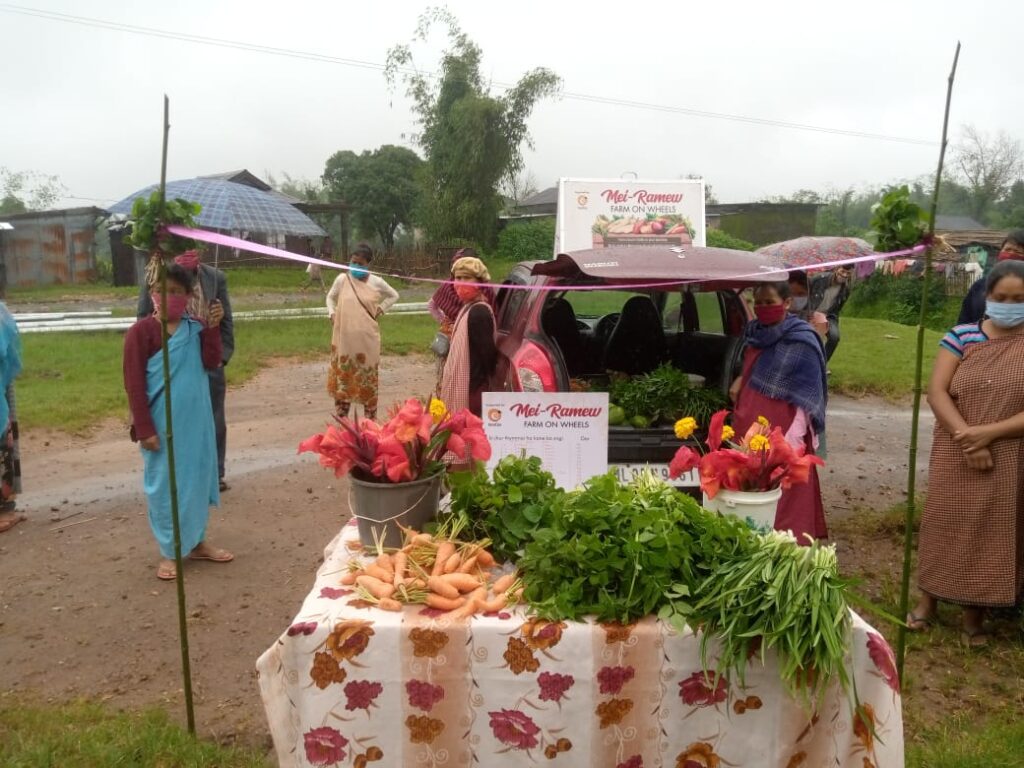
Mawhiang, on the other hand, have sold their produce including mustard leaves, colocasia, pumpkin, and wild edibles like jamyrdoh, jatira, pudina, jangew, sla sohkrot in Mawsynram, and Mawhiang village in over 35 FOW drives.
According to the farmers from both communities, the biggest change FOW has brought has been the ability to set their own price for the produce they sell. Prior to the FOW initiative, both communities sold off their produce at the nearest local markets where retailers often bought the vegetables and fruits at a much cheaper price. Without the third person in the transaction, the farmers have been able to make better profits and also build their rapport among the customers.
For many customers as well, the FOW has been a boon. With fresh locally grown organic produce available at their doorsteps through the FOW initiative, buying food for the kitchen has never been safer. Farmers have shared the many positive feedbacks and support they have received from the customers who laud their produce for the freshness and taste. Many of the customers have also asked for the group to initiate the FOW drives more often. With the help of FOW, farmers have become much more aware of preserving and promoting local produce and have been able to place their organic produce even in their own village helping the cause of the village economy.
But while sales were going great during the back end of last year, the farmers have reported a recent drop in sales amid the onslaught of the second wave. “The profit we get from FOW these days is very less because of the pandemic. I hope the Government will look after us, especially PGS farmers, because we have organically grown our produce.” said a concerned Kong Stialinda Khasain, a farmer of the Nongwah FOW. The Mawhiang FOW also stated on how the transportation fee incurred remains a major challenge for their group.
However, all that said, both groups are of the consensus that the FOW initiative has greatly benefited their PGS farmers economically as well as empowering them as custodians of the local food systems.
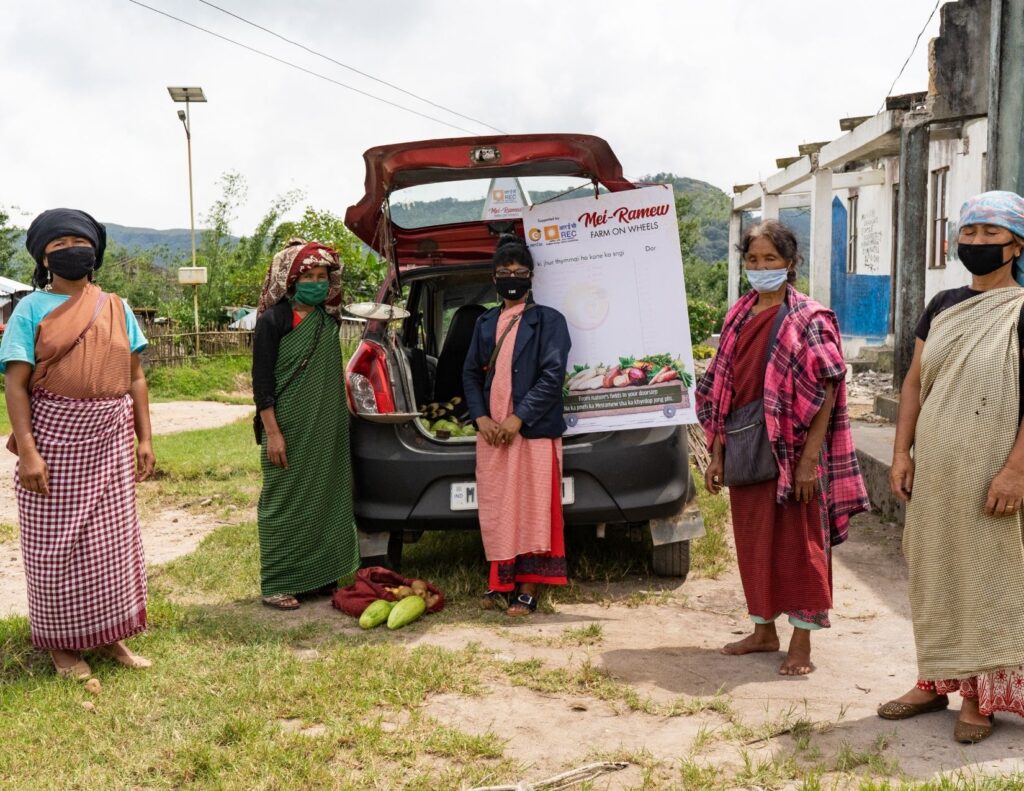
“I’m really thankful that NESFAS has brought the idea of the Farm on Wheels to the PGS farmers and especially to the village as a whole. It has really helped us especially in the times of the pandemic.” expressed Kong Shanita Nongsiej of the Mawhiang FOW group.
There is also a staunch belief among the farmers that sales will pick up once things return to normal. The FOW group from Nongwah has also set its target to produce more organic produce over the years to come with their PGS and Agroecology Learning Circle gardens.

